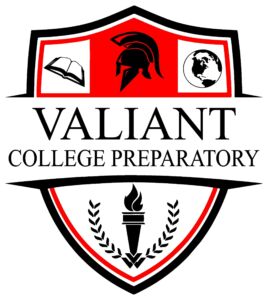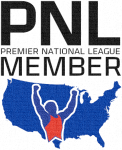Junior English Syllabus
PLEASE READ THE COURSE DESCRIPTION CAREFULLY.
Note that the standards and requirements below are set forth by The College Board and are non-negotiable in order to ensure the rigor of the course and the success of each student.
Course Description:
English Language and Composition is designed to teach the skills you will need to succeed in a college level writing course and will follow the course requirements described in the AP Language and Composition Course Description published by the College Board.
This year we will work together to discuss and critically analyze writing as well as develop your ability to craft an argument, synthesize sources, and conduct research at an advanced level. We will also cultivate media literacy by studying the rhetoric of visual media through art, photos, commercials (print and video), documentary films, and political cartoons.
This course is organized thematically as students will be reading primarily non-fiction works that demonstrate various modes of composition and styles of argument, as well as fiction and poetry from American Literature, in an effort to understand the features of the human condition, the commonalities in the human experience, and the nature of the human spirit. We will examine works for author voice and credibility as well as gain expertise in evaluating point of view, argument and rhetoric.
Students will be expected to read and write daily, review notes and practice acquired skills, to participate in group activities, class discussions, and individual writing conferences before the AP Exam on Wednesday, May 11th, 2016 at 8 a.m. Students will also complete a research project based on a subject of their choosing with the goal of creating change in the world around them.
As this is a college-level course, the workload is both challenging and places a high level of expectation on you with regard to performance. Due to the nature of this course and many of the projects and assigned readings, organizing your time is imperative.
Required Materials:
- Three Ring Binder for class notes or laptop
- 1” three ring binder or sturdy folder with pockets for classroom work storage
- Notebook paper (college-ruled, unreinforced)
- Dividers (Organized Chronologically by Quarter)
- Highlighters (assorted colors brought to every class)
- Pens (No PURPLE pens are allowed. Purple is my color).
- A Dropbox account, Google Drive, or similar for file storage in the cloud. A link will be provided to join Dropbox if you need one.
Extra Credit Materials: These materials may be donated for use by all students. If your materials haven’t been used by the end of the year, you can take it home. Maximum 1 extra credit grade per quarter. If you donate more than one supply, your extra credit will be spread out over the quarters up to 4 extra credit grades.
- Notebook paper (college-ruled, unreinforced)
- Post-its
- Copy paper
- Index cards
- Tissue boxes
Grading Policy:
Academic Grades
Academic grades are to reflect the student’s academic progress based on the standards for the grade level/course in which the student is enrolled. The grade must not be based upon student’s effort and/or conduct.
|
GRADE |
NUMERICAL VALUE |
VERBAL INTERPRETATION |
GRADE POINT VALUE |
|
A |
90-100% |
Outstanding progress |
4 |
|
B |
80-89% |
Above average progress |
3 |
|
C |
70-79% |
Average progress |
2 |
|
D |
60-69% |
Lowest acceptable progress |
1 |
|
F |
0-59% |
Failure |
0 |
Conduct
Conduct grades are to be used to communicate to both students and their parents the teacher’s evaluation of a student’s behavior and citizenship development. These grades are independent of academic and effort grades.
Tutoring:
If your grade drops below a C, and/or if you cease to make sufficient progress in writing assignments, you will be required to schedule an appointment for tutoring before or after school OR a parent-teacher conference to discuss strategies to aid your progression.
Plagiarism Policy:
As per VCP’s Honor Code Policy, “honesty and integrity …are central to the high ethical standards by which all students should abide.” Students are expected to exhibit ethical academic behavior at all times.
Violations of the academic honor code include cheating (the actual giving or receiving of any unauthorized aid or assistance on any form of academic work or requirement) and plagiarism (the copying of or misrepresentation of another’s work as one’s own).
Violations of the Honor Code will be considered a disciplinary matter to be handled in accordance with the policy below:
1st offense: Parent conference and/or written reprimand
2nd offense: Referral and recommendation for administrative action
Social Media and Technology:
With great power comes great responsibility. You may use but not abuse your devices. You may not record me or photograph me without my permission or use my name in social media in a derogatory or disrespectful manner. Students violating these rules will be referred to administration.
Course Texts:
Shea, Renee H., Lawrence Scanlon, and Robin Dissin Autses. The Language of Composition.
Boston: Bedford/St. Martin’s, 2008.
Allen, Janet, et al. Literature: American Literature. Evanston: McDougal Littell, 2009. Supplementary handouts provided by the instructor
Novels (see unit descriptions below) DO NOT PURCHASE NOVELS UNLESS I SPECIFICALLY REQUEST IT!!!
Strategies:
Students will receive instruction in using SOAPSTone-based strategies for analyzing prose, literature (fiction and poetry), and visual texts. In addition, students will learn how to annotate a text and experiment with varied note-taking strategies. These methods will teach the students how to create an interactive experience while reading and initiate a dialogue with the text.
Vocabulary:
Students will work to gain vocabulary and practice using new terms in context and with the correct connotation in order to develop a wide-ranging vocabulary used appropriately and effectively. Students will also be using Membean.com, a vocabulary building program, and are required to complete 4 ten-minute sessions per week.
Writing Assignments and Projects:
Essays:
Informal essays will be written throughout the semester. These essays are graded drafts or responses that may or may not turn into a formal essay. Formal essays will involve the entire writing process: invention or brainstorming, multiple drafts, peer response, instructor feedback, proofreading and editing, and reflection. We will complete 1 – 2 formal essays per quarter. Often times, students will complete multiple informal essays for a unit and choose one to turn into a formal essay. Formal essays will be typed and turned in on the due date with the corresponding rubric, drafts and revisions attached. Grading rubrics will be handed out with the essay assignment.
Timed Writings:
Students will complete one timed free-response every two weeks in order to prepare for the AP Exam in May. The writing prompts will correspond thematically to the texts of the unit or the skill the students are considering. Prompts from released previous AP Exams and found in the required texts will be used. Essays will be reviewed in class and may be subject to peer response and teacher feedback.
Creative Nonfiction:
Students will complete a variety of reflective, creative nonfiction pieces that will demonstrate their mastery of rhetorical modes of composition. This will include a Declaration of Independence, What is a Teenager?, This I Believe, an AntiBucket List, a TEDTalk, etc. This collection of work will be curated in an individual student portfolio that will be printed at the end of the year as a keepsake.
C-SPAN Documentary Research Project:
Students will experience the research process from discovering a topic and developing a thesis statement to submitting the final product. Students will understand all levels of the process including discerning relevant sources, gathering information from diverse sources, and synthesize that information. Students will be required to use MLA (Modern Language Association) editorial style to format internal citations in the body of the paper and to properly format a bibliography or works cited page. This 5-7 page paper will be should be argumentative in nature and completed in conjunction with the CSPAN Student Cam Project. At the end of the video project and research paper, students will write a reflection on their research and writing process.
Course Outline
|
Elements of Composition/Curriculum Focus |
Texts (May Include): |
Assessments/Projects |
|
Unit 1 – Introduction to Rhetoric Essential Questions: How can a reader analyze an author’s rhetorical style to determine purpose? What skills do we need to persuade an audience? What role does classical Greek argument play in our communication patterns today? |
||
|
Diagnostic: Argument Diagnostic: Note-taking |
There (Marie Louise Fitzpatrick) Thank You for Arguing (review) Queen Elizabeth’s Speech at Tillbury |
Review Syllabus Understanding Plagiarism and Academic Integrity, (FIU Plagiarism Tutorial, http://coeweb.fiu.edu/plagiarism/) Student Survey (HW) AP English Language Diagnostic Exam |
|
Introduction to Rhetoric & the Rhetorical Triangle Writing: Elements of a rhetorical analysis essay (Intro, CEI, Thesis, Conclusion) Rhetorical Terms PPT Review of Thank You for Arguing Visual Rhetoric Tools of Analysis: SOAPSTone, TPT, Annotation and Note Taking, Rhetorical Précis “Voice Lessons” and Carpe Diem or YOLO: Understanding Theme |
“Lou Gherig’s Farewell Address” JFK Inaugural Address 2012 Q2 JFK Steel Companies Prompt Ronald Reagan Challenger Disaster Speech 9/11 magazine covers Steve Jobs, Stanford Commencement Speech bell hooks, “In Our Glory: Photography and Black Life” |
Annotation Diagnostic Analysis and Review of JFK’s Inaugural Address. Students will use the proposed thesis or create their own to write an essay analyzing the rhetorical strategies that John F. Kennedy used to achieve his purpose. Reading Diagnostic Exams Intro and CEI paragraph rhetorical analysis writing assignments |
Elements of Composition/ Curriculum Focus
Core Texts
Assessments/Projects
Unit 2: Ethics and Morality
Essential Question: Do our schools serve the goal of a true education? What is a true education?
Membean.com Multiple Choice Practice
Schemes and Tropes (PPT)
Rhetorical Analysis practice using AP Prompts and core texts
Practice essay structure, diction, and thematic connections
Intro to Argument outlining, synthesizing from multiple sources
Ethics and philosophical frameworks
Review of Michael Sandal’s Justice
Organ Harvesting Articles (Assorted) Plato, “Ring of Gyges”
Bharati Muhkergee, “Two Ways to Belong in America”
Niccolo Maciavelli, “The Morals of the Prince”
Orian Mountain Dreamer, “The Invitation”
Synthesis on Organ Donation
Creative Nonfiction: Two Ways to Belong – Using narrative structure to demonstrate multiple perspectives in argument
Group analysis of organ harvesting via philosophical frameworks form Michael Sandel’s Justice
Theme Journals
|
Elements of Composition/ Curriculum Focus |
Core Texts |
Assessments/Projects |
|
Unit 3: Education and The Mind Essential Question: Do our schools serve the goal of a true education? What is a true education? |
||
|
Membean.com Multiple Choice Practice Schemes and Tropes |
“A Talk to Teachers” by James Baldwin, Language of Composition “The Allegory of the Cave” |
Synthesis comparative analysis paper Creative Nonfiction: “A Talk to Teachers” TED Talk “Superman and Me” |
(PPT)
Rhetorical Analysis practice using AP Prompts and core texts
Practice essay structure, diction, and thematic connections
Frames
by Plato, (Hand Out)
“Superman and Me” Sherman Alexie
Descartes, Meditations
TED Talks, “Education Death Valley”
Film Studies:
The Matrix
Leonid Fridman, “America Needs it’s Nerds”
AP Prompt:
Leonid Fridman, “America Needs it’s Nerds” Timed Essay
Panel Participation:
Students will be presented with 5-6 texts (including visuals) representing a viewpoint on the topic of education. Students will read, study, and analyze these pieces and enter the conversation ready to support their argument with evidence from their sources.
|
Elements of Composition/ Curriculum Focus |
Core Texts |
Assessments/Projects |
|
Unit 4: Liberty and Justice for All? Essential Questions: What is the relationship between the citizen and the state? Who has the right to rule? What is the definition of freedom? What does it mean to be an American? How do (did) we create an American Identity? |
||
|
Grammar as Rhetoric Membean.com Multiple Choice Practice Close Reading Techniques for antiquated language and dense texts Introduction to Synthesis Identify Issues Formulating Sources Incorporating Sources Researching Techniques Review and Reinforce: Elements of |
“The Declaration of Independence” – Thomas Jefferson “Declaration of Sentiments” – Elizabeth Cady Stanton “The Fourth of July for the Negro” – Frederick Douglass Protest Literature Film Studies: 12 Years a Slave Recommended texts: “Twelve Years a Slave” “The Defense of Injustice” – Cicero “Tao-te Ching” -Lao-Tzu “The Qualities of a Prince” – Niccolo Macchiavelli |
Creative Nonfiction Pieces: Student Declaration CSPAN/Research Paper Project Timed Rhetorical Analysis Essay Prompts Timed Free Response Essay Prompts Argumentative Essay: 2009 AP released free response question #3 Comparative Analysis of speech writing/focus on audience |
argument, rhetorical analysis and constructing an argument; counterargument
|
Elements of Composition/ Curriculum Focus |
Core Texts |
Assessments/Projects |
|
Unit 6: Transcendentalism: The Individual and The Community Essential Questions: Essential Question: What is the relationship of the individual to the community? What are their responsibilities to each other? What is the nature of humankind? Who determines right and wrong for the individual? What is the individual’s obligation to society? At what point is it necessary to break the law? Where is the individual closest to the divine? How much of one’s values must one compromise to live in society? |
||
|
Grammar as Rhetoric Membean.com Multiple Choice Practice Close Reading Techniques for antiquated language and dense texts Review and Reinforce: Elements of argument, rhetorical analysis and constructing an argument; research process and synthesizing sources |
Novel/Plays: Into the Wild by Jon Krakauer The Scarlet Letter (Nathaniel Hawthorne) The Crucible (Arthur Miller) Articles/Essays: “Sinners in the Hands of an Angry God” (John Edwards) “Walden” –Henry David Thoreau “Civil Disobedience” –Henry David Thoreau “Nature” and “Self-Reliance” – Ralph Waldo Emerson “On Civil Disobedience” – Mahatma Gandhi “Weasels” – Annie Dillard “Health and Happiness” by Robert D. Putnam “Letter from the Birmingham |
Creative Nonfiction Piece: “This I Believe” essay Timed Rhetorical Analysis Essay Prompts Timed Free Response Essay Prompts Timed Synthesis Essay Prompts Roundtable Conversation Anti-Bucket List |
Jail” –Martin Luther King Jr. “Politics and the English Language” – G. Orwell
“Mother Tongue” – Amy Tan Poetry, Naomi Shihab Nye
Recommended Texts:
The Catcher in the Rye by JD Salinger
Other:
“Beautiful Day” – U2
“It’s Not Over Until You Win!”- video by Les Brown
Film Studies:
The Life of Pi
Lars and the Real Girl The Crucible
|
Elements of Composition/ Curriculum Focus |
Core Texts |
Assessments/Projects |
|
Unit 7: Satire Essential Questions: What is the nature of humankind? Who determines right and wrong for the individual? What is the individual’s obligation to society? At what point is it necessary to break the law? Where is the individual closest to the divine? How much of one’s values must one compromise to live in society? |
||
|
Grammar as Rhetoric Membean.com Multiple Choice Practice Close Reading Techniques for antiquated language and dense texts Review and Reinforce: Elements of argument, rhetorical analysis and constructing an argument; research process and synthesizing sources |
“A Modest Proposal” –Jonathan Swift (LOC) Soggy Sweat “Whiskey Speech” Horace Miner’s “Body Rituals of the Nacirema” Media Studies: The Onion, Satire on Television and in Film Film Studies: “Monty Python” Novel: Brave New World by Aldous Huxley |
Creative Nonfiction Pieces: Soggy Sweat Speech Timed Rhetorical Analysis Essay Prompts Timed Free Response Essay Prompts Timed Synthesis Essay Prompts Roundtable Conversation |
|
Elements of Composition/ Curriculum Focus |
Core Texts |
Assessments/Projects |
|
Unit 8: The American Dream: Race, Economic Hardship, and War Essential Questions: How does identity and race shape an individual’s role in society? What is the influence of discrimination on the culture of America? What role does economic status play in an individual’s standing in society? Can the American Dream be achieved? How has the Vietnam War changed the way America and Americans view war? What are the social and cultural impacts of war on Americans? |
||
|
Grammar as Rhetoric Membean.com Multiple Choice Practice REVIEW FOR EXAM: ALL SKILLS |
“Serving in Florida” – Barbara Ehrenreich Novel: The Great Gatsby (F. Scott Fitzgerald) The Things They Carried (Tim O’Brien) NY Times Collective: The American Dream through the years Film Studies: Death of a Salesman An Injury to One |
Creative Nonfiction: The Things I Carry Race and Identity Poem Timed Rhetorical Analysis Essay Prompts Timed Free Response Essay Prompts Timed Synthesis Essay Prompts Roundtable Conversation Speed Dating: AP Test Prep FULL AP Exams Peer Review and Revisions Complete and submit Research Project |
|
Elements of Composition/ Curriculum Focus |
Core Texts |
Assessments/Projects |
|
Unit 9: Gender in America Essential Questions: How is the relationship between men and women portrayed? What are the power relationships between men and women (or characters assuming male/female roles)? How are male and female roles defined? |
||
|
Grammar as Rhetoric Membean.com Multiple Choice Practice Close Reading Techniques for antiquated language and dense texts |
Novel: Their Eyes were Watching God (Zora Neal Hurston) A Room of One’s Own (Virginia Woolf) Fight Club (Chuck Palahnuik) Chapter 7: Gender, Language of Composition “Women’s Brains” by Stephen |
Student Teaching Project: Working in groups, students will present a text and “teach” a lesson by leading the students through class discussions, rhetorical analysis, review of multiple choice questions, and a student-created free response essay prompt. Timed Rhetorical Analysis Essay Prompts Timed Free Response Essay Prompts Timed Synthesis Essay Prompts |
Review and Reinforce Synthesis:
Identify Issues Formulating Sources Incorporating Sources
Researching Techniques
Jay Gould
“Professions for Women” by Virginia Woolf
John and Abigail Adams, Letters
“About Men” Gretel Ehrlich
“The Myth of the Latin Woman: I Just Met a Girl Named Maria”
Judith Ortiz Cofer
“Being a Man” Paul Theroux
“AIDS Has a Woman’s Face” by Stephen Lewis
“There is No Unmarked Woman” Deborah Tannen
“Women’s Rights are Human Rights” Hillary Clinton
Roundtable Conversation: Defining Masculinity Continue with Research Project


